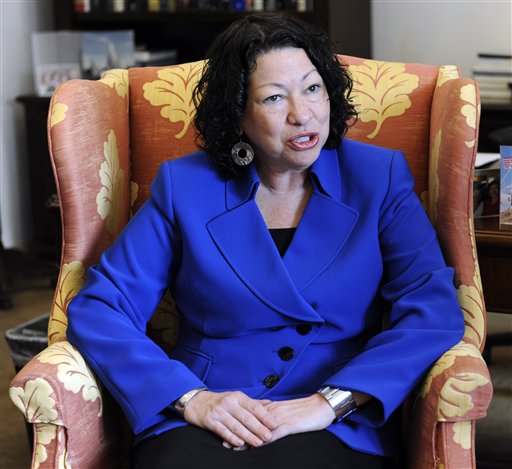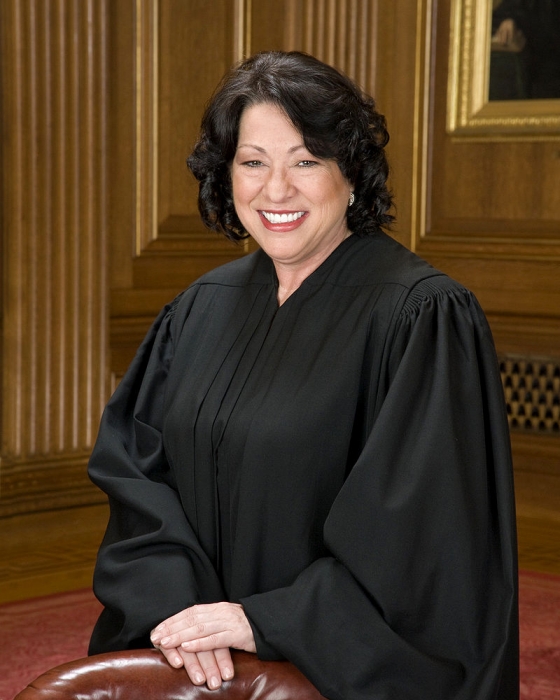Sonia Sotomayor, (1954 – ) is an associate justice of the U.S. Supreme Court who has also served as a federal district court and a federal appeals court jurist in her career. Since her appointment to the Court in 2009, Sotomayor generally has been a consistent defender of First Amendment values on the bench.
Born in the Bronx, Sotomayor attended Cardinal Spellman High School where she was valedictorian. She then earned her undergraduate degree from Princeton University, graduating summa cum laude. She then obtained her law degree from Yale Law School and served as an editor of the Yale Law Journal.
After her law school graduation, Sotomayor served as an assistant district attorney in New York beginning in 1979. In 1984, she entered private practice with a commercial litigation law firm. In 1992, President George H.W. Bush appointed her to the U.S. District Court for the Southern District of New York, where she presided until 1998. That year, President Bill Clinton elevated her to the Second U.S. Circuit Court of Appeals. In 2009, President Barack Obama appointed her to the U.S. Supreme Court. Congress confirmed her by a vote of 68 – 31. She became the first Hispanic justice.

Supreme Court Justice Sonia Sotomayor meets in Washington in 2009 after being nominated to the Supreme Court. Sotomayor wrote the opinion for a unanimous Court in Lane v. Franks (2014), providing that a public university employee could not be fired for providing truthful in-court testimony. “There is considerable value, moreover, in encouraging, rather than inhibiting, speech by public employees,” she wrote in her opinion. (AP Photo/Susan Walsh, used with permission from the Associated Press)
Sotomayor has written First Amendment opinions for the Court
Sotomayor wrote the opinion for a unanimous Court in Lane v. Franks (2014), providing that a public university employee could not be fired for providing truthful in-court testimony. “There is considerable value, moreover, in encouraging, rather than inhibiting, speech by public employees,” she wrote in her opinion, invoking the Court’s seminal public employee decision Pickering v. Board of Education (1968).
She also authored the opinion for a unanimous Court in Milavetz, Gallop, & Milavetz v. United States (2010), upholding provisions of the Bankruptcy Abuse and Consumer Protection Act from free-speech challenges.
Most recently, Sotomayor expressed concerns about the Court’s true threat jurisprudence in a special concurring opinion in the denial of certiorari in Perez v. Florida (2017). She explained that in the appropriate case the Court needed to clarify the level of intent required to convict someone under a true threat statute.
David L. Hudson, Jr. is a law professor at Belmont who publishes widely on First Amendment topics. He is the author of a 12-lecture audio course on the First Amendment entitled Freedom of Speech: Understanding the First Amendment (Now You Know Media, 2018). He also is the author of many First Amendment books, including The First Amendment: Freedom of Speech (Thomson Reuters, 2012) and Freedom of Speech: Documents Decoded (ABC-CLIO, 2017). This article was originally published in 2017.

